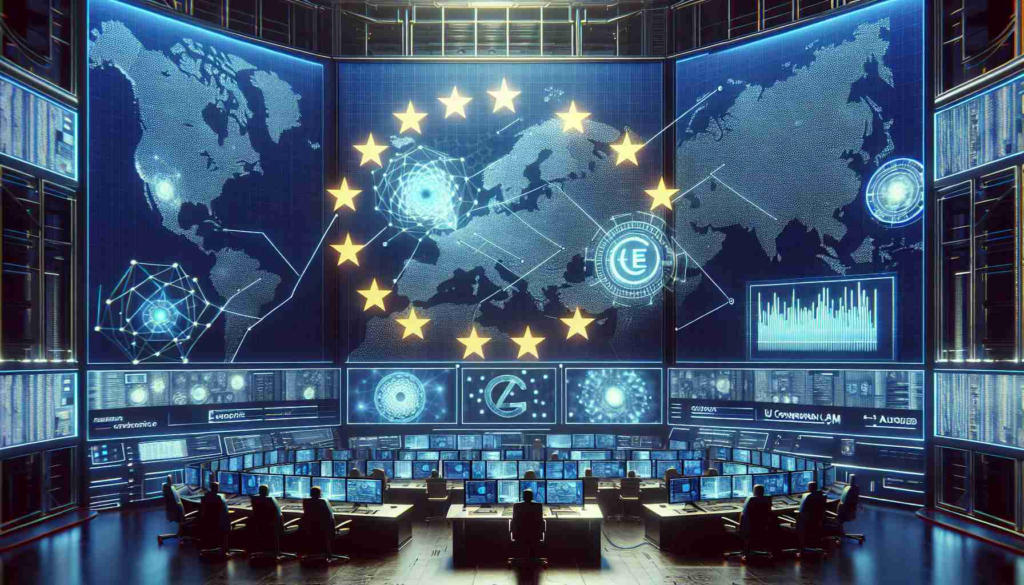
The European Commission has taken a bold leap in cybersecurity by encouraging upgrades to post-quantum cryptography (PQC), aimed at countering the potential risks posed by quantum computing. This move is critical to preserving the confidentiality of sensitive data and maintaining operational integrity within the EU's Digital Single Market.
Summary: This insightful analysis discusses the European Commission's efforts to move to post-quantum cryptography to address the security challenges of quantum computing, supporting industry growth, international cooperation, and overcoming adoption challenges. emphasizes the need for
A paradigm shift towards PQC represents a valuable strategic move to preserve the EU's economic stability and privacy. The committee proposes a solution that integrates a software-based approach that works in harmony with current infrastructure. This should result in a smooth and budget-friendly migration process.
As quantum threats become increasingly apparent, the cybersecurity industry is witnessing a surge in research and development, and significant market expansion is predicted. However, many obstacles stand in the way, including the standardization of PQC algorithms and the problem of data being collected now but to be deciphered by quantum technology in the future.
In this complex context, the EU's strategy is consistent with global efforts to develop reliable PQC standards and represents a collective and coordinated approach to cyber defence. The European Commission is working with organizations such as NIST and ENISA to strengthen this transition.
The European Commission's foresight in introducing PQC demonstrates its dedication to ensuring a resilient digital economy, ready for future cyber threats, and highlighting the EU's influential contribution to global digital security. It shows a positive attitude.
The impact of post-quantum cryptography on the cybersecurity industry
The European Commission's advocacy of post-quantum cryptography updates is an important strategic initiative aimed at strengthening the security of data transmitted across the European Union's digital environment. As quantum computing advances, current encryption standards such as RSA and ECC may be compromised, exposing sensitive information to new risks. Therefore, promoting post-quantum cryptography will not only strengthen data privacy, but also protect the EU's digital economy and its competitiveness.
Post-Quantum Cryptography Growth and Market Forecast
The cybersecurity industry is poised for transformative growth, driven by the impending threat of quantum computing. The global market for post-quantum cryptography is expected to expand significantly as both governments and businesses acknowledge the need for quantum-resistant algorithms. Investment in PQC research and development is skyrocketing, with companies in the financial, defense, healthcare, telecommunications, and government sectors seeking solutions to protect their data from future quantum attacks.
Challenges and considerations in implementing PQC
Despite optimistic market forecasts, the industry faces multiple challenges in the adoption of PQC. One of the big concerns is the standardization of PQC algorithms. This is an effort that requires balancing the need for robustness against quantum attacks with practical considerations regarding performance and integration with existing systems. Additionally, there is the “harvest now, decrypt later” dilemma. This means that attackers could be accumulating data that is currently encrypted and waiting for quantum computers to become powerful enough to decrypt it.
Strengthening global cooperation is a critical theme in addressing these issues. The European Commission's efforts coincide with international efforts to pre-empt quantum threats. For example, organizations such as the National Institute of Standards and Technology (NIST) and the European Union Cybersecurity Agency (ENISA) are important partners in the race to establish workable PQC standards.
PQC prospects in global digital security
The European Commission's proactive stance in the post-quantum cryptography transition will not only ensure the EU's sovereign interests, but also contribute to the collective defense of global cybersecurity. This forward-thinking policy highlights the impact quantum computing will have on national and international security and commerce. The emergence of PQC is poised to play a key role in future-proofing digital infrastructure and maintaining society's trust in digital services.
To further explore global cybersecurity efforts and the digital economy, you can visit sites such as the European Commission and the National Institute of Standards and Technology for additional insights and resources.
In conclusion, as the cybersecurity landscape evolves, the European Union's determination to stay ahead of the curve by emphasizing post-quantum cryptography highlights the EU's influence in shaping the direction of global digital security standards. It is emphasized that there has been a significant increase in

Igor Nowacki is a fictional author known for his imaginative insights into futuristic technology and speculative science. His writings often explore the boundaries of reality, blending fact and fantasy to envision breakthrough inventions. Nowacki's work is praised for its creativity and ability to make readers think beyond the limits of current technology and imagine a world where the impossible is possible. His articles combine his science fiction with visionary technology predictions.


